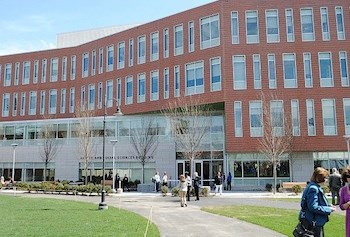College and School Changes Reflect University Growth

07/18/2013
By Karen Angelo
Thanks to University growth and program expansion, two departments have elevated to school status and the School of Health and Environment has changed its name to the College of Health Sciences.
The Department of Criminal Justice and Criminology will now be known as the School of Criminology and Justice Studies and the Department of Nursing has changed to the School of Nursing.
“These changes reflect the increasing complexity of both of these units and are expected to raise the profile of each school’s programs and research among prospective students, faculty, partners and funders,” says Provost Ahmed Abdelal.
Both schools are located in the new Health and Social Sciences Building on South Campus.
As the role of nurses has expanded, so, too, has nursing education. With more than 600 students, the School of Nursing continues to build up
on programs, offering baccalaureate, master’s, doctorate of nursing practice and Ph.D. degrees to meet the demanding needs of the healthcare industry. The change from department to school better reflects the caliber of the nursing programs, research and faculty and is expected to help recruit and retain quality students and faculty and attract funding.
The College of Health Sciences – which includes the School of Nursing and the departments of Clinical Laboratory and Nutritional Sciences, Community Health and Sustainability, Physical Therapy and Work Environment – is growing and changing in response to health-care needs.
“The name ‘health sciences’ better reflects the programs offered on human health within a science context and allows for future expansion,” says Dean Shortie McKinney of the College of Health Sciences. “We expect to announce new programs in the fall.”
The School of Criminology and Justice Studies has experienced considerable growth and development in its degree and certificate programs, research and domestic and international partnerships. With approximately 1,200 undergraduate and graduate students, the school is involved in the development of new academic programs and interdisciplinary research initiatives in the domains of security studies, human-service delivery systems and public policy.
“These efforts will be strengthened by the flexibility provided by a recognized school,” says Dean Luis Falcón of the College of Fine Arts, Humanities, and Social Sciences.
